
4 Essential Insights from the 2016 Yale Customer Insights Conference
Official Conference Summary Presented By

Ravi Dhar, Professor of Marketing at the Yale School of Management, opened this year’s Customer Insights Conference with brief historical reflection. At the first conference, in 2005, Facebook—or, more accurately, The Facebook— had one million users; today it has 1.65 billion. Twitter and the iPhone didn’t yet exist.
To say that consumer technology has changed is an understatement. “How consumers now shop and engage is radically different,” said Dhar. “And how we study consumers is also different.” With that introduction, he opened the floor to leading practitioners and academics in the marketing world who described how these changes take shape on the front line. A few of the day’s critical takeaways:
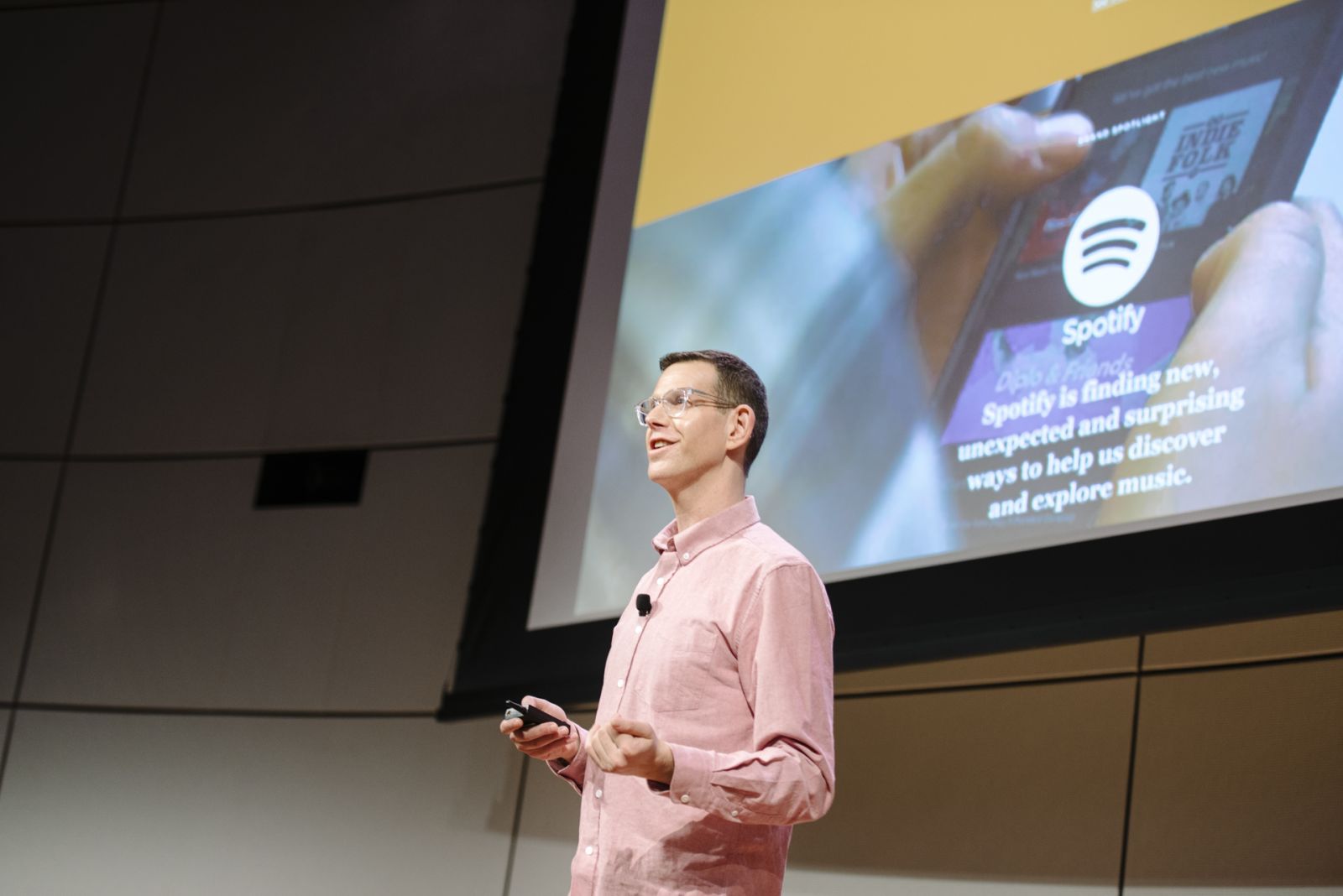
Context is becoming more important than content.
The average online consumer has an eight-second attention span. This, paired with the mobile and social nature of purchases, is forcing companies to master the timing of their messages. “I have to be with consumers at all of their touch points,” said Simon Lowden, PepsiCo’s President of Global Snacks Group. “If I’m thinking about marketing ‘campaigns,’ I’m already in the wrong place. I need to start thinking about connected stories.” ![]()
In this way, context is overshadowing content. For instance, Eric Solomon, the Director of Global Brand Strategy at Spotify, described how shifting habits among music listeners is changing the way Spotify reaches its audience. While music fans (and marketers) once focused on particular genres—pop, hip hop, indie—Spotify instead targets mood states, like ‘chill,’ ‘focus,’ and ‘sleep.’ “Use state is starting to really drive how we think about our market,” said Solomon. The company has also put its extensive data collection to good use with contextual campaigns like the “Year in Music,” which showed both individual listeners and whole neighborhoods the artists they loved most in 2015.
Design your analytics to measure what matters.
“There is an avalanche, an overwhelming amount of data that can unleash insights and spawn new ideas,” ![]() said Alison Lewis, Chief Marketing Officer of Johnson & Johnson, during the conference’s keynote address. “The challenge is that such a large amount of data can absolutely paralyze an organization.” So how can companies transform the nearly limitless quantities of information they gather into focused and functional insights?
said Alison Lewis, Chief Marketing Officer of Johnson & Johnson, during the conference’s keynote address. “The challenge is that such a large amount of data can absolutely paralyze an organization.” So how can companies transform the nearly limitless quantities of information they gather into focused and functional insights?
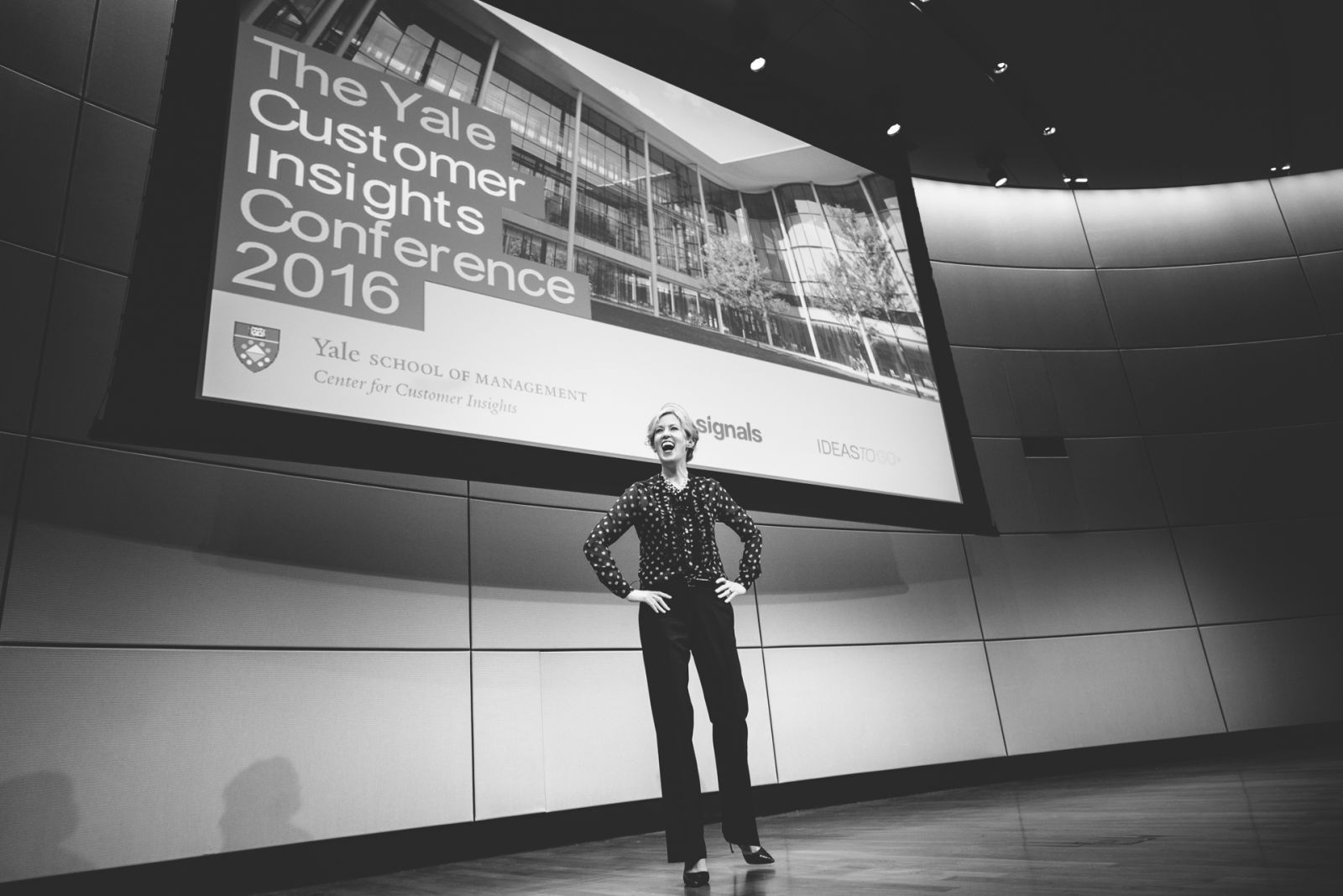
Kirsten Lynch, CMO at Vail Resorts, offered one clear-eyed perspective on how she and her team manage this challenge. Vail Resorts, which operates ski resorts across the West and Midwest, offers its customers an app called EpicMix to track every detail of their trip—from the runs they skied to the restaurants where they dined. On the back end, Vail is able to collect and analyze information for each individual, offering recommendations in real-time as well as enticements for future visits.
“Based on the data, we find which statistics are predictive of likelihood to return and likelihood of loyalty,” said Lynch. “We can then use this to market to a specific customer by taking aspects of her experience and connecting on personal and emotional levels to get her to rebook for the next vacation.” This tight scope allows Lynch’s team to remain focused at a time when the availability of data is almost limitless.
Stay agile to keep up with the accelerating pace of change.
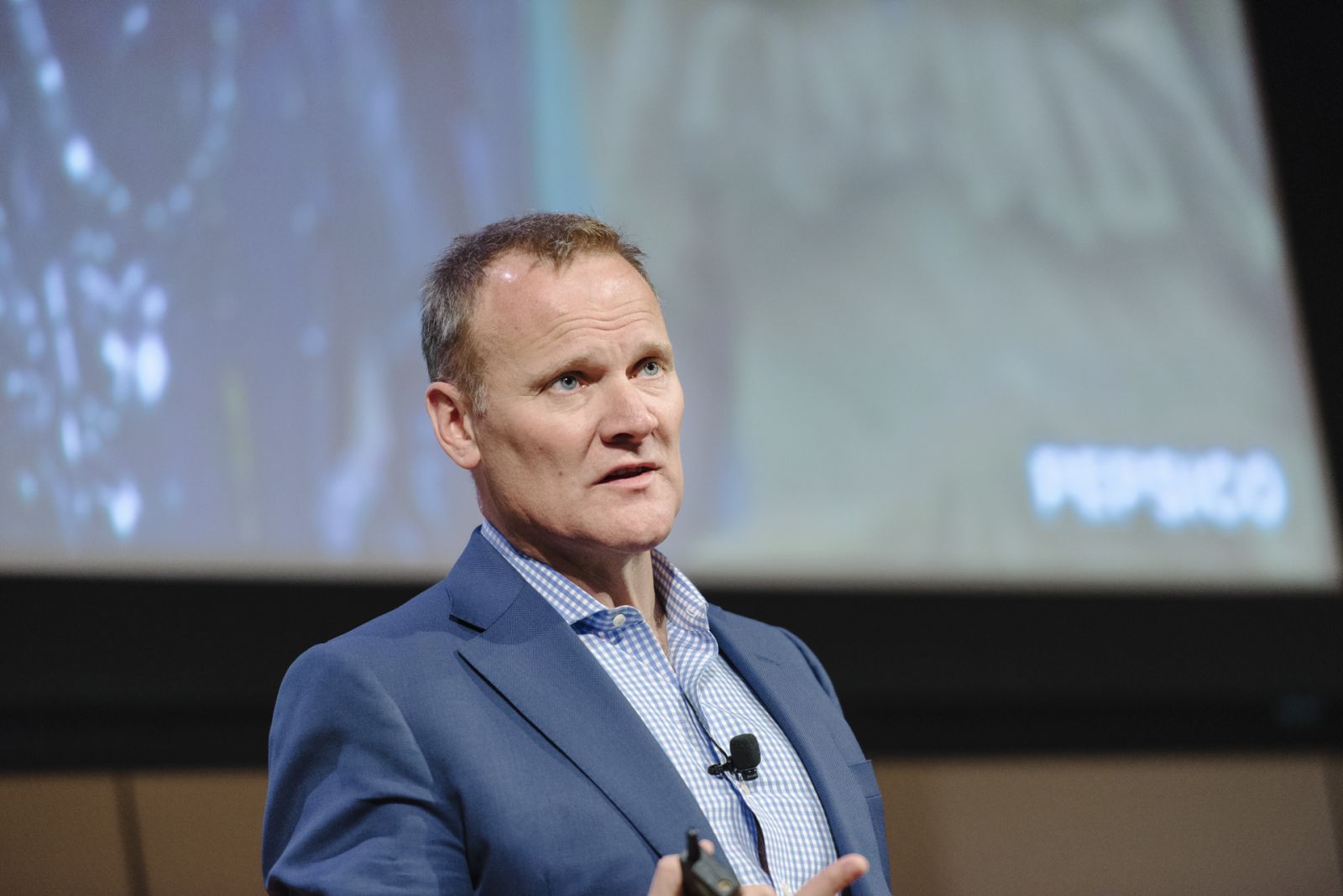
PepsiCo’s Simon Lowden noted that we “live in a world where there is no linearity.” The rate of technological change is accelerating, and marketers must keep stride.
“We need people who love data, understand data, can architect around that data and do it all in real time,” said Alison Lewis of J&J. “Constant refreshment is critical to ideas that are social at the core.” Her team, for example, analyzes hundreds of millions of social media impressions every day to monitor what drives behavior most effectively. Pete Fader of The Wharton School noted that videogame giant Electronic Arts reassesses the value of one billion customer every day based on usage statistics. And Vail’s Kirsten Lynch described the fluidity of her customer segments: season pass holders were once divided into four segments, then eleven, then eighty, and have now been reduced since discovering that some of those eighty are not behaviorally distinct from one another. “There must be a constant, iterative learning process with the data,” said Lynch.
Integrate the art and the science of marketing.
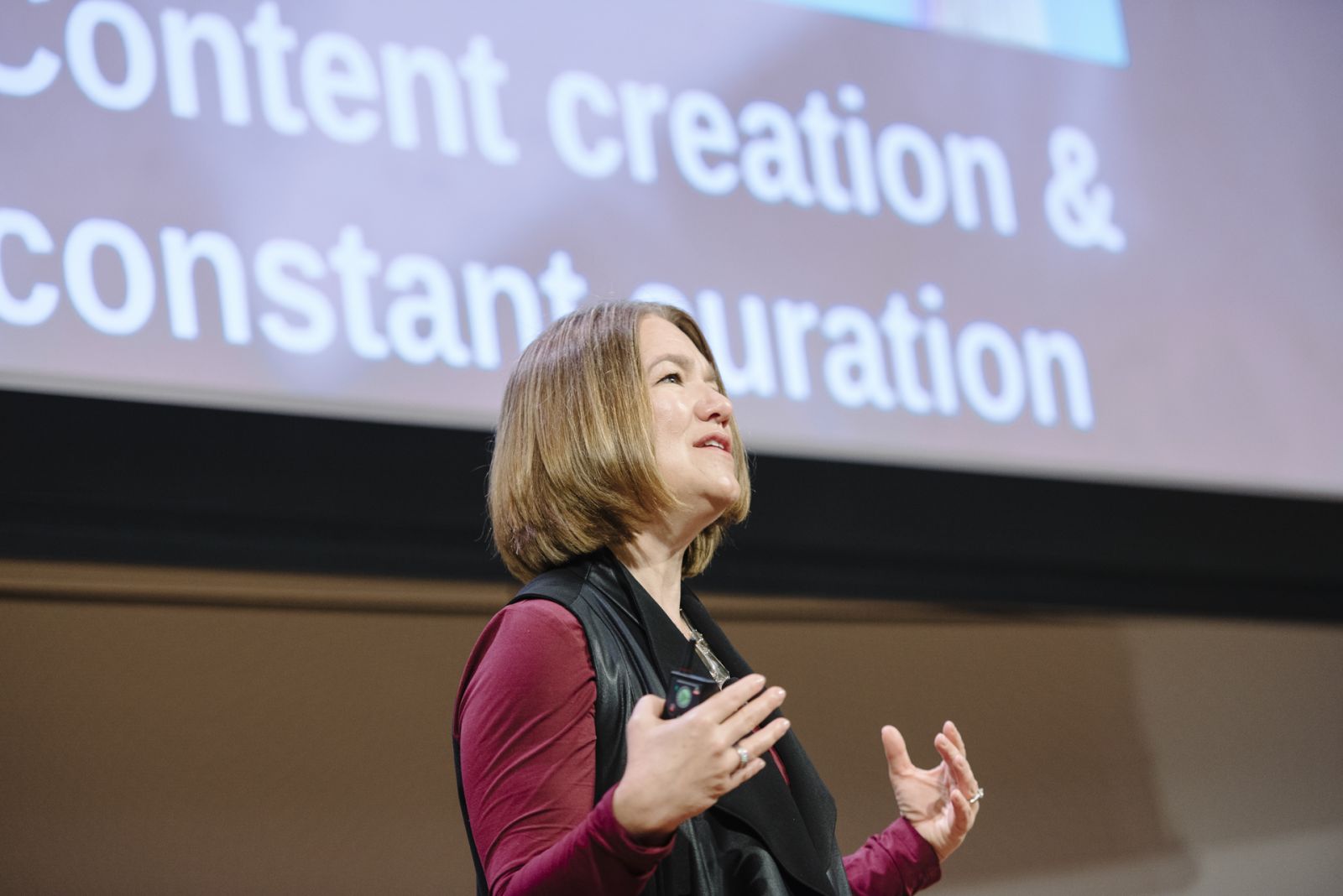
Alison Lewis spent much of her keynote describing the new frontier of marketing as the integration of science and art. J&J’s work on a baby’s bath time, for instance, connects on a deeply emotional level; but the campaign is backed by science explicating the connection between bath time and healthy infant development. She explained how this integration can illuminate some fundamental truth about the product or service. “Brands must have purpose at their core,” she said, noting the J&J’s infant products don’t exist as simply cleansers or lotions, but as integral components of a baby’s development. “People choose their products based on why these brands exist.”
Ben Steele, the Chief Creative Officer of REI Co-Op, spoke to this issue when describing his company’s attempt to “show the world what we believe” at a time when it felt like the company had largely lost direction. He ran a brainstorm session in which employees were asked to explain what the holidays mean to them, and, from this, emerged the idea to close all REI stores on Black Friday and pay employees to get outside. Though an outlandish idea in the context of what Black Fridays represents for most retailers, REI went ahead with the campaign.
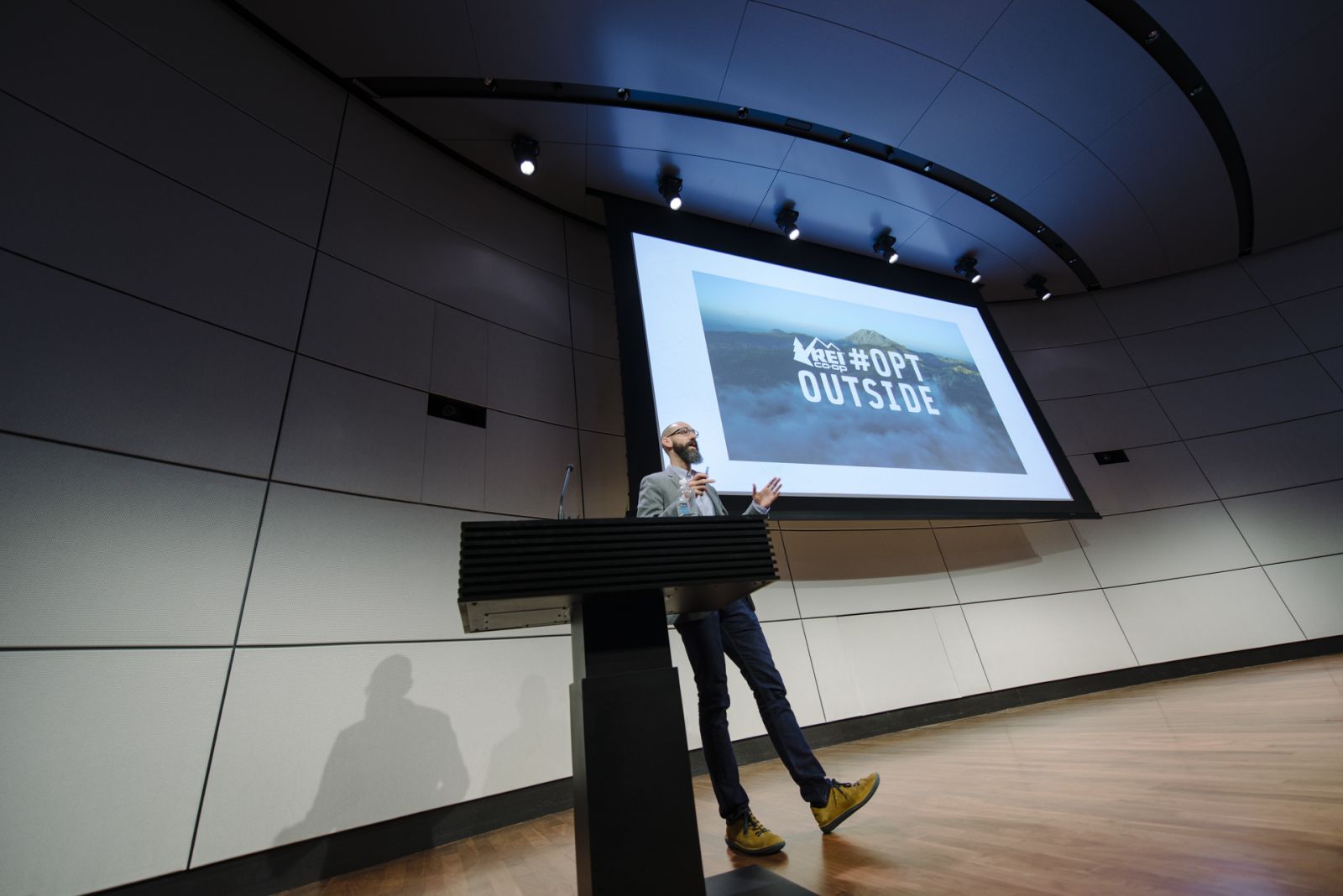
“This was a way to tell a story about the value and power of the outdoors over consumerism,” said Steele. The action spurred tremendously positive press and drove loyalty and commitment; shoppers could choose to buy outdoor products anywhere, but they committed to REI because they recognized their beliefs in the company’s action.
Mark Demuro, president of Horizon Group, summarized the conference by saying “the pace of change is accelerating and the winners will be those that anticipate change and continue to lead. ![]() The integration of the science and art of marketing, for example, is a brave new frontier that is just starting. This year’s conference defined the agenda for marketing for the year ahead.”
The integration of the science and art of marketing, for example, is a brave new frontier that is just starting. This year’s conference defined the agenda for marketing for the year ahead.”
Over Friday and Saturday, a total of 18 speakers took the stage, advancing cutting edge perspectives from academia and professional experience, from global and national companies. For a full list of speakers, see below. And please join us for next year’s conference, scheduled to take place May 12 – 13, 2017.
Friday, 6 May 2016
- Alison Lewis, CMO, Johnson & Johnson
- Pete Fader, Professor of Marketing, Wharton
- Kirsten Lynch, CMO, Vail Resorts
- Eric Solomon, Director, Global Brand Strategy, Spotify
- Ross Martin, EVP, Marketing Strategy & Engagement, Viacom
- Simon Lowden, President, Global Snacks Group, PepsiCo
- Ben Steele, Chief Creative Officer, REI
- Rob Schwartz, CEO, TBWA\Chiat\Day New York
- Christine Barton, Senior Partner & Managing Director, Boston Consulting Group
- Daniel Goldstein, Principal Researcher, Microsoft Research
- Zoë Chance, Assistant Professor of Marketing, Yale School of Management
Saturday, 7 May 2016
- Eva Ascarza, Assistant Professor or Marketing, Columbia Business School
- Kelly Goldsmith, Assistant Professor of Marketing, Kellogg
- Ron Shachar, Professor of Marketing, Arison School of Business
- Michel Tuan Pham, Professor of Business, Columbia Business School
- Nancy Puccinelli, Associate Professor of Marketing, Saïd Business School Oxford
- Donald Ngwe, Assistant Professor of Business Administration, Harvard Business School
- Kosuke Uetake, Assistant Professor of Marketing, Yale School of Management
